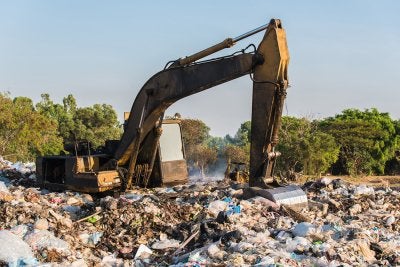When you toss your garbage in the nearest dumpster, you may not give a second thought as to where it heads after it has been collected by a trash pickup service. In fact, there are several different kinds of landfills that serve various waste management functions. After you set up dumpster rental near Atlanta, you may want to ask your waste management professionals about the different types of landfills that are used to process your waste. To help you understand common waste management practices, here is an overview of three of the most common types of landfills. 
Municipal Solid Waste Landfills
Household trash and rubbish is typically sent to a Municipal Solid Waste Landfill, or MSWL. MSWLs are located across the United States, and each city, town, or county typically has its own landfill site. These landfills must be located at a safe distance away from neighborhoods and commercial districts, and they must also be equipped with liners and leech collection systems that prevent the surrounding groundwater from becoming contaminated.
Industrial Waste Landfills
An industrial waste landfill is specifically designated for the disposal of solid industrial waste products. Industrial waste landfills are engineered to safely house a variety of different types of industrial waste products, including plastic, glass, concrete, and construction debris. Along with collecting industrial waste, these landfills also serve as disposal sites for construction debris. It is important to note that hazardous waste products, such as asbestos, cannot be processed at a standard industrial waste landfill facility.
Hazardous Waste Landfills
A third type of landfill is known as a hazardous waste landfill. Since these landfills are designed to house many different types of hazardous waste, they are subject to strict regulations from the EPA. Every hazardous waste landfill must contain a double liner, runoff control system, and leak detection technology. Hazardous waste landfills are routinely inspected to make sure that they are not leaking harmful materials into the surrounding environment. If your business generates hazardous waste, you will need to make sure that your waste materials are being delivered to one of these landfills.

